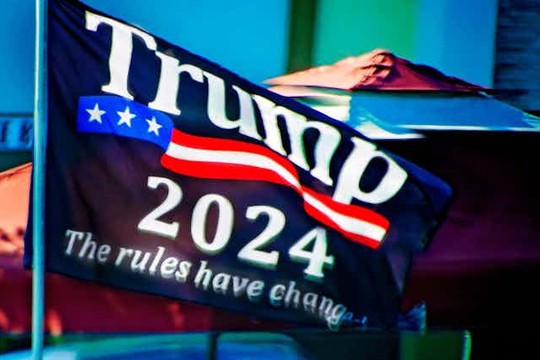Pic.: The Conversation
The Western-led multilateral world order that flourished after the end of the cold war and embodied a more hopeful collaborative spirit has for years been showing signs of strain, notes ‘The Financial Times’.
Now the re-election of Donald Trump with his “America First” agenda threatens to accelerate its decline — if not render it irrelevant.
“Welcome to the brave new world,” said a senior EU official of the consequences of Trump’s emphatic election victory. “It’s very, very bad for everyone,” they said — not just in Europe but in Asia, Africa, the Middle East and South America. “Nobody is a winner. Except, perhaps, [Vladimir] Putin.”
Many leaders of developing economies profoundly disagree. A more inward-looking America, retreating from its traditionally dominant role on the global stage, creates an opportunity for the so-called middle powers, such as Brazil and Indonesia, to take a bigger role in reshaping the world more to their liking.
But the US election result has already thrown multinational policymaking into disarray. In the next fortnight two global summits are scheduled: the COP climate talks in Baku and then a week later the G20 leaders’ annual meeting in Rio de Janeiro.
In a stroke, their proposed agendas risk being undercut. Trump has long made clear his disinterest in, if not disdain for, the type of multilateral gatherings that the US, as the world’s pre-eminent power, has by and large presided over for three decades.
“We are seeing how much the world order, the one that was built after the second world war with the UN charter at the centre, will be increasingly under pressure,” said Christoph Heusgen, chair of the Munich Security Conference.
A sense of foreboding is particularly acute among America’s east Asian and European allies who have long relied on the US as a security shield, and fear Washington under Trump would be less predictable and less reliable.
As for NATO, Trump has questioned whether the US would honour the alliance’s mutual defence clause. Nato officials are unsure whether this was a genuine threat to a historic understanding or mere rhetoric designed to put pressure on them to spend more on defence.
EU leaders gathering in Budapest on Thursday for a summit tried to put a brave face on the future of multilateralism. “Today’s geopolitical context requires us to strengthen the multilateral system and make it more inclusive,” Josep Borrell, the EU’s chief diplomat, told the FT.
But privately many are gloomier. The Joe Biden administration, while less committed to free trade than its predecessors, has done its bit to back the multilateral order. But even so, that order has come under increasing strain as tensions grew between the US and China as well as Russia. Several key institutions are deadlocked.
The UN Security Council has returned to the frozen impasse of the cold war years. The World Trade Organization is moribund, even before the arrival of a second Trump administration that may unleash a global trade war. The president-elect is expected to impose sweeping tariffs on imports into the US, likely accelerating a global push towards protectionism and a retreat from the free trade model championed by Brussels.
As for the World Bank and IMF, which have dominated global economic policymaking since their foundation in 1944, the election of the unilateralist Trump means they face being squeezed between two conflicting pressures.
Criticism of the two institutions has mounted from countries in the global south, which say their western-dominated leadership does not reflect the shape of the modern global economy.
The first big test of the old order will come this week. Delegates preparing for the COP29 climate forum fear the election of Trump, who has vowed to pull the US out of the Paris climate agreement to limit global warming below 1.5C degrees, could prompt an exodus of other countries from the pact.
Delegates worry other states will pre-emptively water down their own commitments in anticipation of Trump’s presidency, undermining hopes for the Baku summit even as global temperatures hit record highs.
Such sentiments also threaten the green ambitions of Luiz Inácio Lula da Silva, Brazil’s president, ahead of the G20 leaders’ summit in Rio and the country’s hosting next year of COP30.
One senior western diplomat involved in preparations for the G20 said the summit risked becoming “a car crash” in the wake of Trump’s election. “It will be a very complicated G20. There are so many destabilising factors, and I’m not sure we can mitigate that,” the diplomat said.
read more in our Telegram-channel https://t.me/The_International_Affairs

 11:14 13.11.2024 •
11:14 13.11.2024 •























